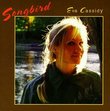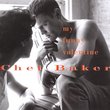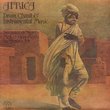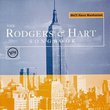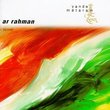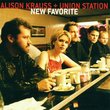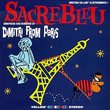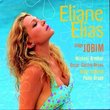| All Artists: Charlie Hunter Title: Natty Dread (Cover Series) Members Wishing: 0 Total Copies: 0 Label: Blue Note Records Original Release Date: 3/25/1997 Release Date: 3/25/1997 Genres: Dance & Electronic, Jazz, Special Interest, Pop, Rock Styles: Electronica, Acid Jazz, Jazz Fusion, Modern Postbebop, Bebop, Experimental Music, Jam Bands, Jazz Jam Bands Number of Discs: 1 SwapaCD Credits: 1 UPCs: 724385242021, 0724385242052, 724385242045, 724385242052 |
Search - Charlie Hunter :: Natty Dread (Cover Series)
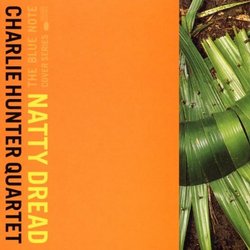 | Charlie Hunter Natty Dread (Cover Series) Genres: Dance & Electronic, Jazz, Special Interest, Pop, Rock
The words and beats are crucial to the power of Bob Marley's songs. When Hunter turns "Lively Up Yourself" and "Bend Down Low" from his Natty Dread into soul-jazz, organ-combo shuffles or "Dem Belly Full" into a Latin-jazz... more » |
Larger Image |
CD DetailsSynopsis
Amazon.com The words and beats are crucial to the power of Bob Marley's songs. When Hunter turns "Lively Up Yourself" and "Bend Down Low" from his Natty Dread into soul-jazz, organ-combo shuffles or "Dem Belly Full" into a Latin-jazz blowing session, he divorces them so completely from the originals that they lose their connection to Marley. They become generic '50s jazz tunes, and Hunter's quartet isn't good enough to make such material sound special. Not a single tune features a real reggae rhythm, and instead of making the tunes richer, the rearrangements make them blander. The album's one special moment comes on an imaginative interpretation of "No Woman, No Cry." It begins with a solo guitar rendition of "The Tennessee Waltz," which segues smoothly into a glowing, understated version of the Marley ballad. --Geoffrey Himes Similarly Requested CDs
|
CD ReviewsWhat's so great about Charlie Hunter - Will Flannery | Berkeley, CA | 06/26/2000 (5 out of 5 stars) "Charlie Hunter graduated from Berkeley High School, like Joshua Redman, Bennie Green, and a number of other jazz players, and formed a little trio that played locally. They played the San Francisco club scene, mostly young people into all sorts of music, not your hard core jazz audience. They released a record, "The Charlie Hunter Trio" on a local label, and it was something of a local hit. Unprecedented for a SF group to my knowledge. On the basis of this record they landed a deal with Blue Note and recorded two more albums before they disbanded.What was so great about the trio and the first CD? Lot's of things. First is the two gimmicks, a drums/guitar/sax trio, and Charlie's 9-string guitar that he uses to play both lead and bass. Then, there is the rhythm. This group doesn't restrict itself to the standard chink chinka chink jazz rhythm but instead uses funk, hip-hop, fusion and other rhythms. So, it swings much harder then the typical jazz group. And, Charlie's comping on guitar/bass has the rhythmic drive of a Hammond organ combo. Second is the tunes. CH writes catchy tunes, this is of inestimable value. Third, Dave Ellis, the sax player, is a great melodic soloist. And forth, because the group is so small, the players support each other, and it's unusual to hear a sax player supporting the guitar. It gives the band a sound that is unique.So, after experiencing meteoric success, based in large part on sensitive mutual support, the Charlie Hunter Trio disbanded! To record "Natty Dread" Dave Ellis was replaced by two local sax players, Calder Spanier and Kenny Brooks. The whole sound of the band changed.So, what's so great about this CD? What's so great about this CD is the cut "Lively Up Yourself". It's absolutely great. It has a clever melody, played as a backdrop, based on the Bob Marley tune; it has Charlie Hunter's patented driving, organ like, rhythm that is infectious and doesn't let up start to finish. And it has two of the best sax solos you're ever going to hear. Spanier lead off with a quirky alto solo; his playing can only be compared with Paul Desmond's, he doesn't have the 'dry martini' sound, but he does have the oblique melodicism that made Desmond great. Then Kenny Brooks comes on with a solo that kicks out the jams. Way out. It's a staggeringly good solo, with laid back but intense inner workings alternating with wild flights to the extreme reaches of the horn. Take my word for it, this isn't senseless noodling, this is hard driving melodic jazz that is as good as it gets. Check this one out." Amazon Review Misses The Point!! Will Flannery | 05/11/1999 (5 out of 5 stars) "This excellent album by Charlie Hunter is part of the "Blue Note Cover Series" a series of albums in which Blue Note JAZZ artists interpret classic albums by contemporary artists. Part of Hunter's genius was to alter the rhythms, making "Lively Up Yourself" swing with his pseuo-organ sound, and locking 'Walking Blues" into a soul jazz groove. This is an excellent intro to soul jazz and Hunter." A possible desert island album? R.J. Ronquillo | 12/09/1999 (5 out of 5 stars) "A lot of us won't admit it, but we like to here covers and no on does it quite like the Bay Area's Charlie Hunter. O'l 8-string Chuck has done it on his trio album "Bing! Bing! Bing!" (Nirvana's "Come As You Are") as well as his Monk,Roland Kirk,James Brown group, T.J. Kirk. "Natty Dread" presents Marley's material in such a creative way, and Hunter knows how to arrange the individual tunes intelligently. Combining shuffles, salsa, bebop, and funk, it his hard to be bored by this album. One thing that irks me is when he solos, although very impressive, it sounds struggling and sometimes takes away from the rest of the song. But don't let that spoil your fun, "Natty Dread" is good music and the Charlie Hunter quartet is good people."
|

 Track Listings (9) - Disc #1
Track Listings (9) - Disc #1